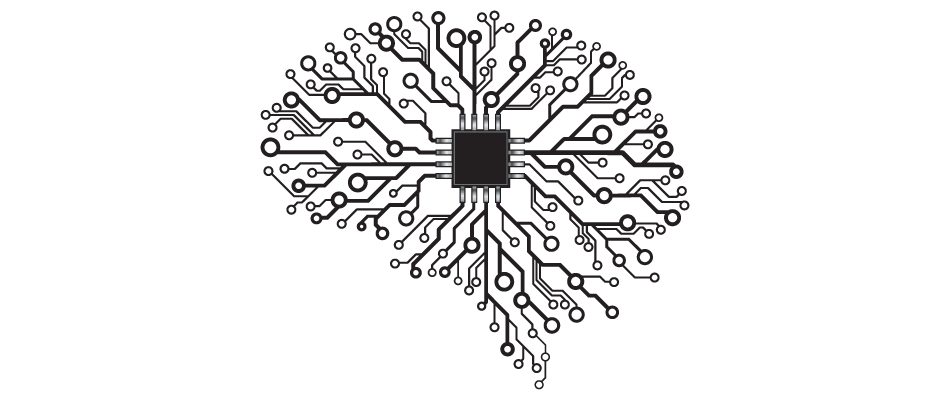Let's Talk !

AI-assisted robotic surgery: Using data contained in medical records to guide surgeons through surgery.
Nurse-like chatbots: navigating basic questions with natural language interpretation, processing requests and notifying the appropriate staff member to navigate patient concerns.
Diagnosis: Analyzing symptoms and producing objective, diagnostic possibilities for medical professionals.
Medical billing: AI has the capacity to automatically conduct audits, self-adjusting known values to the audit results.
Healthcare Rides the AI Wave
As we explore the benefits of next generation automation solutions in unconventional settings, the word manual is quickly rendered obsolete. Healthcare is no stranger to digitization, continually adopting technologies to improve patient outcomes. However, even in lieu of the EHR movement, the healthcare industry has continued to subject itself to manual billing and coding software systems debilitated by miscalculations and faulty error checking processes.
Over half of medical bills are mishandled, skewing costs in both directions and resulting in billions of dollars in improper payments. For a long time there was no way to circumvent the billing and coding infrastructure, and where there are manual processes, there are inevitable errors.
With a growing number of patients being treated, the number of billing errors increases exponentially. Handling this influx of data requires a sorting and organizational intelligence with processing power that far surpasses that of human resources.
Recently, healthcare establishments have been combating the billing deficit with artificial intelligence (AI) software. When applied to billing and coding, sophisticated AI technology has the capability to contextualize unstructured data, compartmentalizing EHR data and connecting relevant information together. Healthcare AI funnels data into a logical timeline and makes sense of disparate records—events, diagnoses, procedures—to eliminate errors in coding and reporting.
Machine Learning represents a system of computers capable of self-learning and carrying out computational processes that traditionally require human brain power. While early AI work began in the late 1950's, we have reached profound milestones during the last decade.

AI analyzes data, giving meaning to the data using advanced algorithms that become increasingly intuitive over time, much like how with experience, humans become more influential and efficient in their roles.
Most importantly, AI automates repetitive analyses and procedures, which has led to substantial reductions in operational costs for industries across the board. In other words, we are replacing human intelligence with machine learning, and doing so at an ever-increasing rate.
Healthcare has finally caught onto the AI movement, applying the technology to pinpoint data within EHR databases and extract the relevant information for billing purposes. With AI, we can build resilient and scalable medical coding software.
Artificial Intelligence Renders Manual Medical Billing Obsolete
At this moment in time, there are over 70,000 billable codes in the healthcare industry, a true nightmare for medical coders who spend their days matching a medical visit with the corresponding code. Medical coders work in conjunction with computer-assisted-coding programs in an attempt to maximize error checking.
The sheer volume of billables encourages quick processing, which in turn, inhibits the medical coder's accuracy. It does not help that the majority of medical coders are new to the system due to the increased demand and aging veteran workforce.
Translating the EHR data into codes accurately and quickly is a process that takes years of experience to carry out effectively, and the current medical coding workforce cannot perform at the rate the healthcare system demands.
It is safe to say that most agree the healthcare organizations is in dire need of a more intelligent back-end system to propel medicine forward, considering the miscalculations of the current system negatively impact clinicians and patients alike.
This is where AI comes in. Not only does AI address all of the hurdles the current system perpetuates, but it also represents a platform we can build from.
AI learns with the architecture around it, so as its environment evolves it evolves as well. The healthcare industry is experimenting with technologies we have only skimmed the surface of, AR, VR, precision medicine, and nutrigenomics. Artificial intelligence can operate fluidly to build understanding around new frameworks by recognizing known patterns and deciphering relationships between known plus new values.
In addition to accurately coding EHR data, AI has the capacity to automatically conduct audits, self-adjusting known values to the audit results. As it grows in sophistication, the system will continue to narrow margins of error, funneling revenue back into the healthcare system by billing the correct amount. This will benefit patients as well, ensuring they are never overcharged and allowing them to easily access their medical bills in a more palatable form.
Obviously there is a question of initial costs: how much will an artificial intelligence system cost me? The short answer is, significantly less than you are currently losing in yearly revenue to a legacy billing and coding system.
Artificial intelligence must be engineered around the infrastructure it is intended to operate within, and will require integration services to unify the old and the new so that everything works cohesively. Stomaching the developmental costs is a means to a high-profit end; the resources saved from finally rendering those manual process obsolete will far surpass the resources expended.
Disclaimer:
Chetu does not affect the opinion of this article. Any mention of a specific software, company or individual does not constitute an endorsement from either party unless otherwise specified. This blog should not be construed as legal advice.
Founded in 2000, Chetu is a global provider of tailored software development solutions and support services. Chetu's specialized technology and industry experts serve startups, SMBs, and Fortune 500 companies with an unparalleled software delivery model suited to the needs of the client. Chetu's one-stop-shop model spans the entire software technology spectrum. Headquartered in Plantation, Florida, Chetu has fourteen locations throughout the U.S. and abroad.
Privacy Policy | Legal Policy | Careers | Sitemap | Referral | Contact Us
Copyright © 2000-2024 Chetu Inc. All Rights Reserved.
